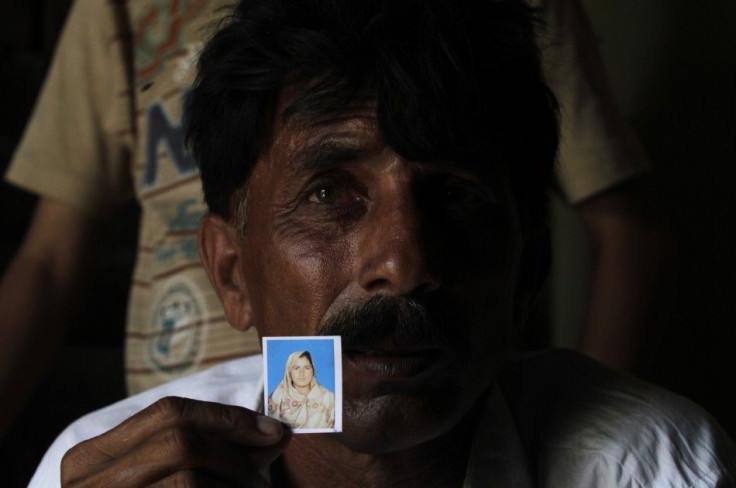Father, Husband, Brother And Cousin Of Farzana Who Killed Her For 'Honour' May Escape Pak Court's Death Sentence Order

Four male relatives of the pregnant woman, Farzana Iqbal, who had been beaten to death outside a High Court in Pakistan in June, 2014, for an "honour" killing have been given death sentences last week.
It was a killing that hit the headlines all over the world in June. The guilty list in the case includes the father, brother, cousin, and the ex-husband of the murder victim, said the defence lawyer, Mansoor Afridi. One of the attackers was her first husband, who claimed that his wife, Farzana, had married Iqbal without a divorce from him. Another brother was sentenced to 10 years in prison for the crime.
The men were charged with murder, terrorism and the killing of an unborn baby. They have also been fined US$1,000 each. As there has been a "de facto moratorium," or a law ending mandatory death sentencing on capital punishment in Pakistan since 2008, the four men would not be hanged, but they would face life imprisonment, according to RT News.
Although honour killings are not unusual in Pakistan, what made this case stand out was that it took place in a crowded street in broad daylight in Pakistan's second-largest city, Lahore. The 30-year-old pregnant woman was bludgeoned with bricks and sticks outside Lahore's high court. Police denied that they stood by while it took place, according to BBC.
Farzana had visited the high court in order to defend her second husband in a case that had been put up by her relatives against him. They had accused him of kidnapping Farzana, but her argument was that she had married him of her own free will. The police said that 20 members of her family and 10-15 of Iqbal's had got into a scuffle, during which she was hit by a brick thrice and wounded fatally. He, however, escaped. But the 45-year-old Muhammed Iqbal begged the nearby police officers to stop the murder, though he did not get cooperation.
Relatives of the convicted men are ready to appeal against the court's decision. Their lawyer, Afridi, said that the verdict was "a decision based on sensationalism." He is convinced that the case has been politicized, and the pressure by the media has also influenced the ruling.
Pakistan's prime minister, Nawaz Sharif, had asked for action against the murderers. Moreover, it drew global attention, as the United States called it "heinous." Almost 1,000 "honour killings" of women are carried out in Pakistan every year, but most of them do not even make the headlines. Last year alone, 869 women were subjected to honour killings, according to the Human Rights Commission of Pakistan (HRCP). However, according to Pakistani law, more than half the cases of the guilty could avert punishment if the families of the victims "forgave" them.
Apart from Farzana, her sister Rehana too seems to have undergone the same experience, as she refused her family's instructions to leave her husband. Farzana's husband, Muhammad Iqbal, who tried to prevent Farzana's murder, had himself murdered his first wife in order to marry Farzana. Iqbal's son, who had reported the crime against his father, "forgave" him and withdrew the charge, allowing him to walk away! HRCP feels that this legal practice has made "honour" killings rampant in Pakistan.






